Get Science Done


2024–2030



2024–2030
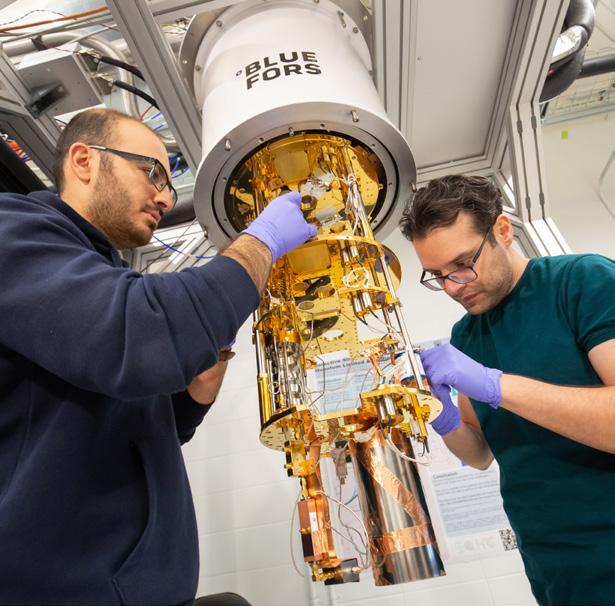

Radical Research Collaboration
• A Culture Of Big Thinking And Bold Teams
• New Levels Of Productivity With Core Facilities
• Energizing Entrepreneurial Networks

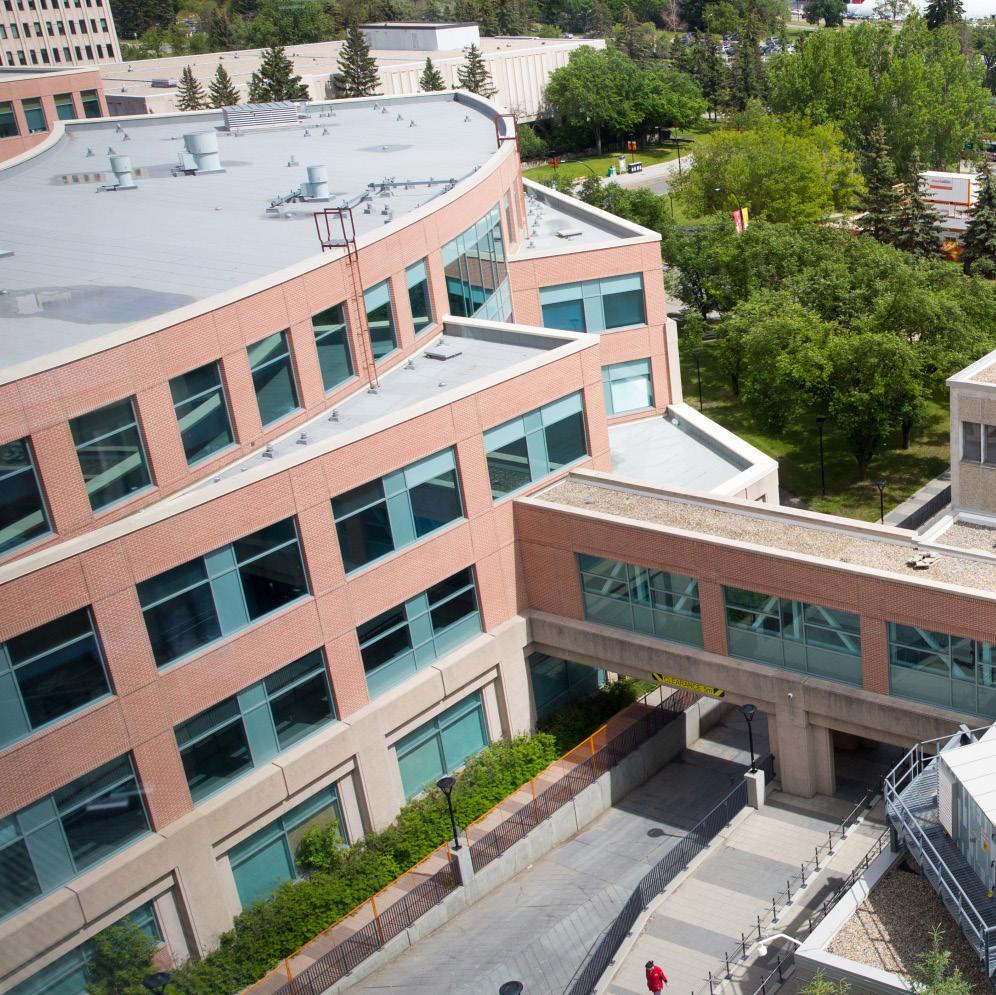
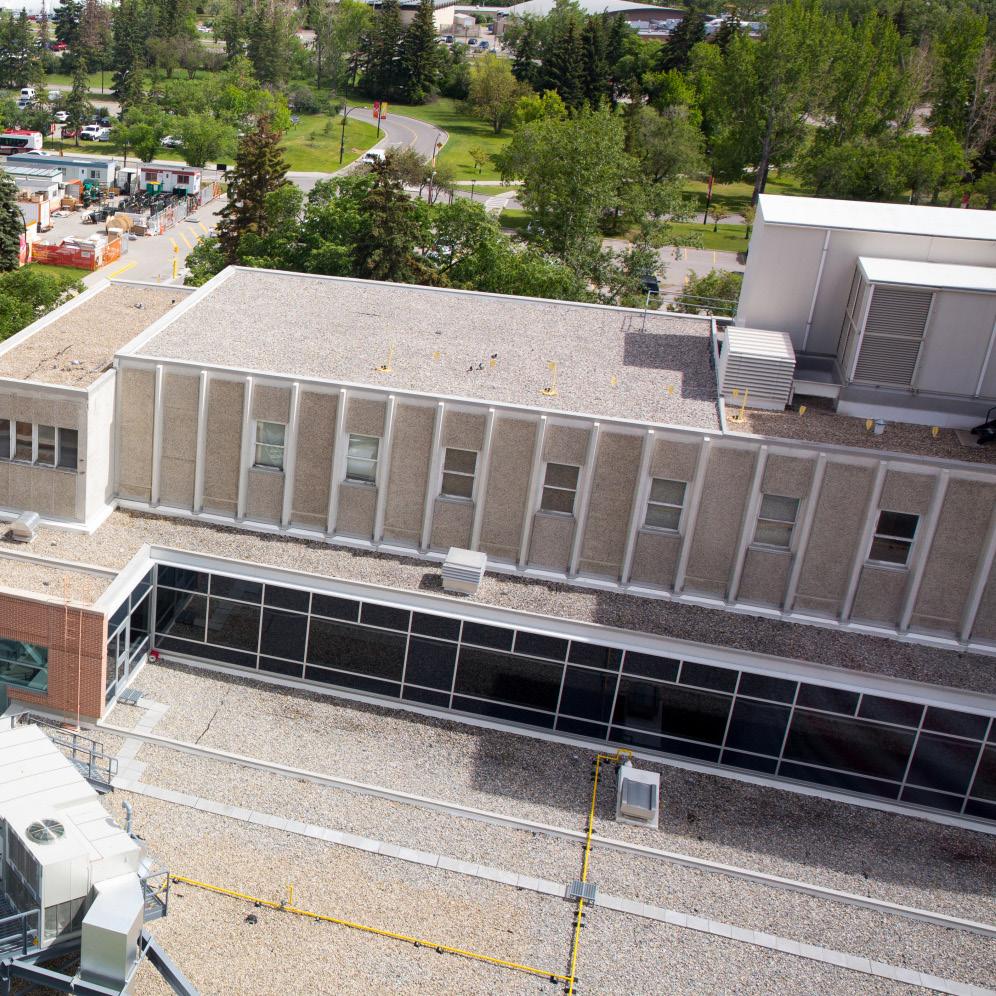
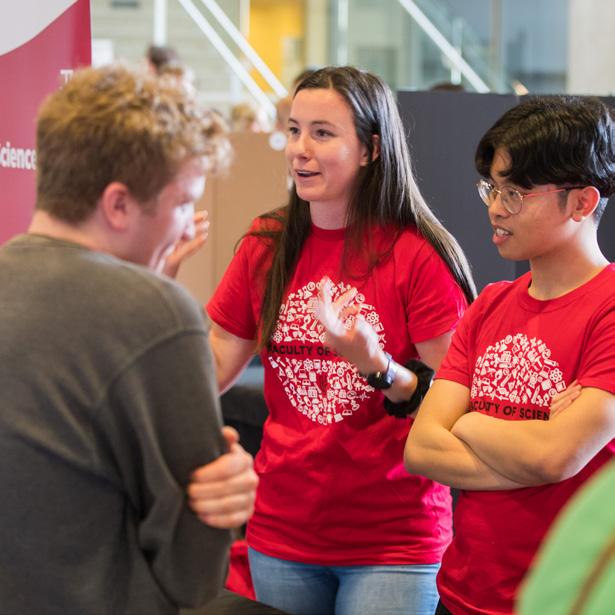
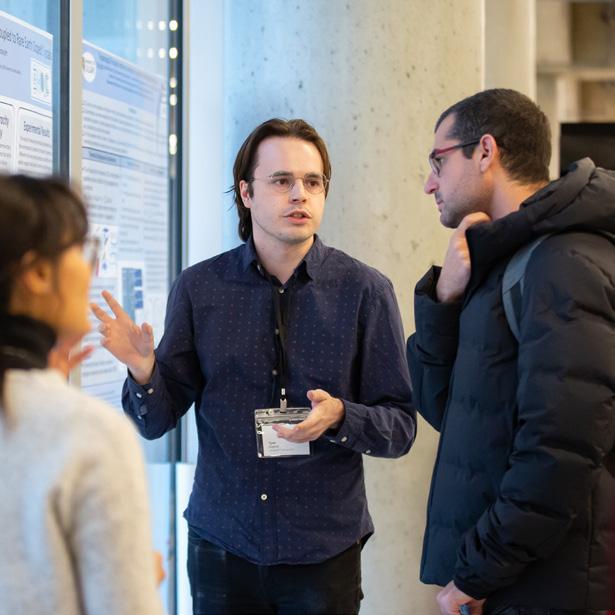
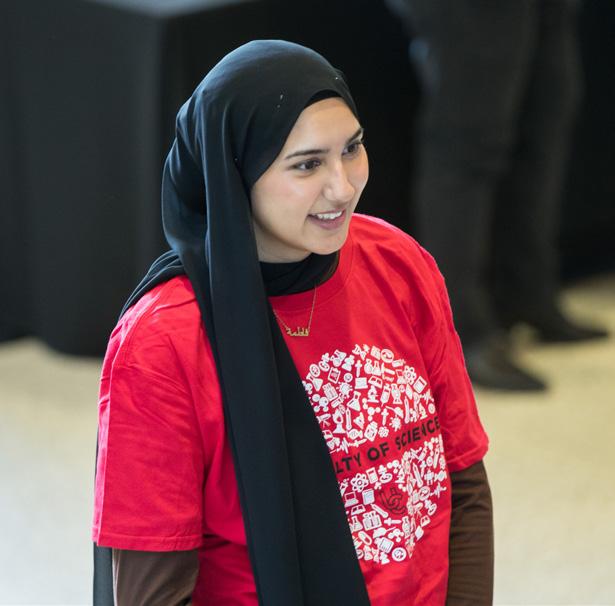

• A Destination For Disruptors
• Talent Pipeline To Drive Alberta’s And Canada’s Economy
• Investing In Excellence
• Leading Stipends For Graduate Students

• Building A Science District
• Deeply Engaging The Community In Science
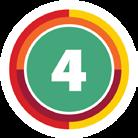
Activating Science Education A Thriving Culture Destination Science District
• Putting People First, Responsibly And With Ease
• Commitment To Reconciliation And Diversity
• Skills Training For Collaborative Leadership
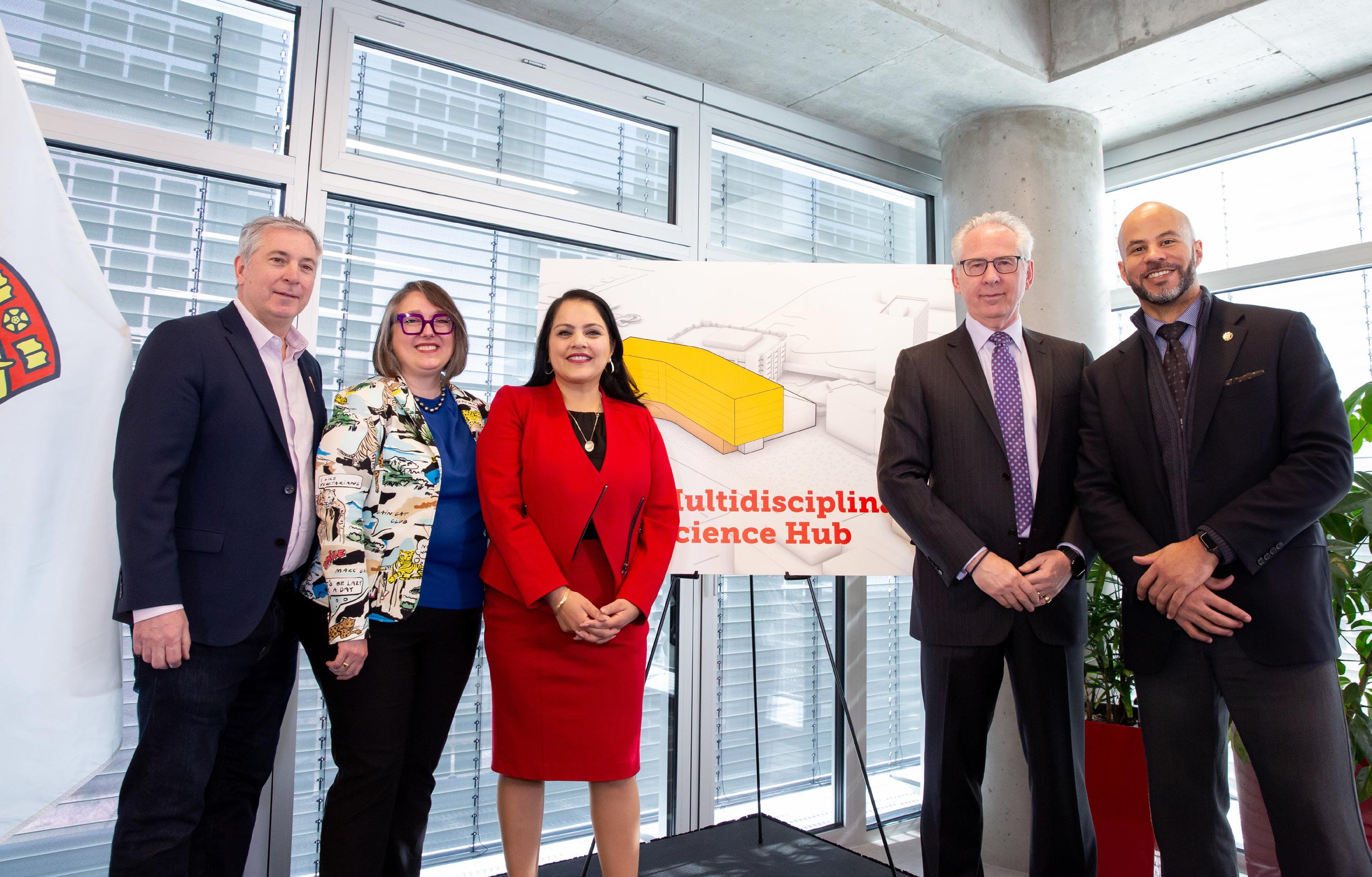
The Faculty of Science at the University of Calgary is burgeoning as a destination for research talent and action-oriented students. To guide this growth, a strategic plan has been developed with broad and deep involvement of the faculty and community, to realize a shared vision for 2030.
The vision emerged through standalone processes and aligns beautifully with the University of Calgary 2023-2030’s Ahead of Tomorrow strategic plan, validating the position of the Faculty of Science in the university’s bold trajectory.
Under the leadership of a new dean, the Faculty of Science undertook a fresh five-year strategic planning process between December 2022 and January 2024. The need for a new vision was clear. Enormous changes in science, culture and the economy all demanded a new vigour for one of the largest and yet under-recognized faculties at the University of Calgary.
At its heart, the Faculty of Science is driven by curiosity, exploration and discovery. We celebrate curiosity-driven investigation and make fundamental advances in scientific knowledge. We lead change by mobilizing scientific knowledge with the goal of making positive change for our community and the world.
Through excellence and innovation in teaching and learning, we provide students with future-focused programs that ensures everyone can participate in the opportunities a science education affords. And we strive to do this through a lens of inclusive excellence so all can thrive.
The focus was placed on the new opportunities to elevate a unique experience and profile for the faculty overall. To build on our established strengths. An urgency emerged – to take action with science at this time in human history. Demand for involvement is high and growth is required.
What better time and place to lead with science toward an expansive and positive vision of the future?
The resulting plan is timely and fitting for the high calibre of students, faculty members and staff at one of Canada’s strongest research universities, the University of Calgary.
The Faculty of Science is guided by values that are proactive, positive, and future-focused. We:
• Value the diversity of people
• Are compassionate mentors
• Drive best practices
• Strive for continuous improvement
• Are open and transparent
• Are effective and efficient
• Actively create opportunities to collaborate, innovate, and initiate
• Meaningfully engage with many communities
Care was taken in this strategic planning process to meet the pressing need for a path to the future that brings hope.
The strategic planning process was directed by an internal Task Team, including academic and non-academic staff, to ensure the plan was grounded within the faculty.
Through departmental and faculty meetings, one-on-one interviews, lunches and town halls, surveys, online portals, and extensive consultation, the faculty came together to develop a clear common goal. Eye-opening input from Calgary companies and community organizations was gathered through a robust series of roundtables and interviews.
The outcome is a strategic plan that will dramatically improve experiences and impacts led by and for faculty, staff and science students at a leading Canadian university. This plan will Get Science Done at the nation’s most entrepreneurial university, with a distinct and positive impact on Calgary and the world.
The imperatives that emerged through the planning process have been shaped into a galvanizing vision.
By 2030, the Faculty of Science at the University of Calgary is home to some of the nation’s most exciting large-scale collaborative research initiatives. Alberta’s entrepreneurial spirit drives a culture that Gets Science Done! The faculty attracts talented and ambitious students with a penchant to learn by doing, increasing the applications from diverse people locally, across the country and the globe.
The radical research collaborations attract the community attention, engaging hundreds of partners and tens of thousands of citizens in a destination science district at the University of Calgary – a physical and cultural interface that welcomes everyone at the junctures of science and society. This important and enthralling work is made possible by a workplace culture that invests in people and a regenerative mindset. Backed by the power of what only scientists can do, we are here to make the world a better and more hopeful place.
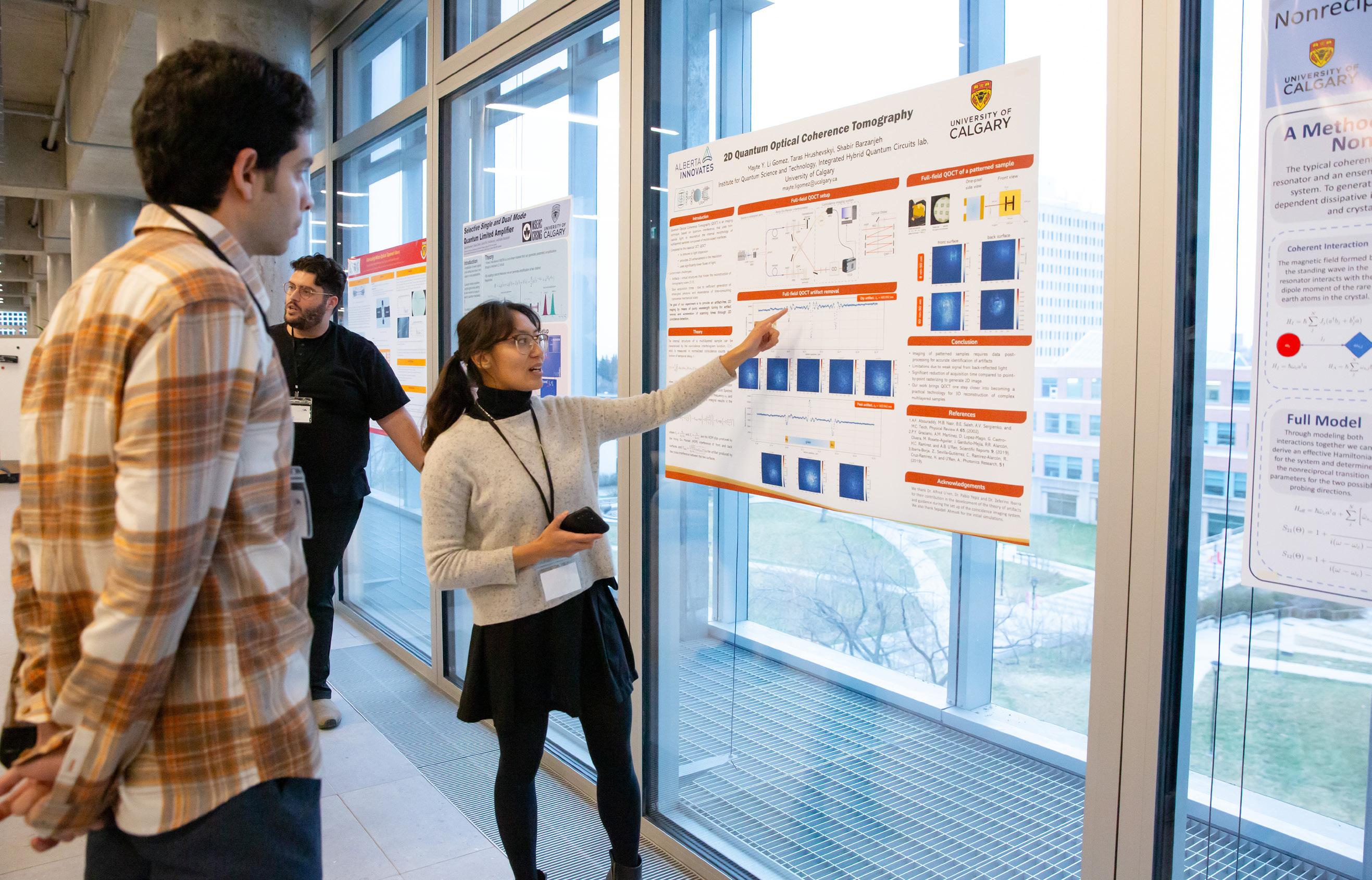
This vision is informed by several key considerations:
The world’s research challenges are asking for radical research relationships
Radical collaboration is the dynamic assembly of transdisciplinary research groups and individuals to tackle targeted problems. It makes use of high service, modular laboratory and field equipment and modern collision spaces to achieve research goals that align with faculty and university strategic priorities. It is supported by a culture in which these
assemblages, especially in combination with shared and core facilities, are a natural part of creating scientific knowledge and new technology. Radical research collaboration forms the core of the new strategy.
Demand far exceeds capacity for Faculty of Science programs. For every student accepted, more than three must be declined. This increase in demand is strongest from international students. And this international demand is highly concentrated in computer science. Furthermore, graduate enrolment is growing and has increased by 21% since 2019, four times faster than other universities and also three times the population growth of Calgary. A commitment to thoughtful growth is required.
The Faculty of Science has a long history of connecting its research activities to practical applications that are highly complementary to existing strengths in the local economy of Calgary and Alberta. There is significant interest to see stronger positioning of the Faculty of Science as a positive contributor to current complex challenges. And companies in Calgary want to be involved. Consultations with corporate and community partners showed strong interest in higher levels of involvement in research programs, training of students, and building largescale initiatives.
Interest is growing in a university education that allows students to hit the workplace running. Greater emphasis is wanted by students on life-long learning that is competency-based, with credentials as evidence. On the employer front, companies are seeking students who graduate with not only core education but also wrap-around skills, ready for the workplace. These point to the need to diversify program offerings, to develop and deliver
relevant programs in ways that make a wider range of students feel welcome, and to deliver these programs in more flexible ways.
As student demand and partnership demand increases, adequate high-quality space is needed. Fully 80% of faculty space is made up of largely unrenovated academic buildings that are more than 50 years old. By expanding and unifying the science buildings with users in mind, a destination science district can be created that supports radical research collaborations, new ways of working and engaging students and partners, and welcomes the public to engage in conversations at the interface of science and society.
Every aspiration is achievable with teams built on trust. The commitment to radical research collaborations, novel approaches to research and teaching, and open and transparent engagement with community partners, all involve the development of a high-trust culture. This culture can be achieved by investing in people. “People” means all people, with diversity, inclusion, equity and accessibility goals front and centre. Commitment to recognition and reconciliation with Indigenous communities, by walking in parallel paths together is key. And people need to be supported by outstanding services with an aim towards operational excellence.
Every aspiration is achievable with teams built on trust.
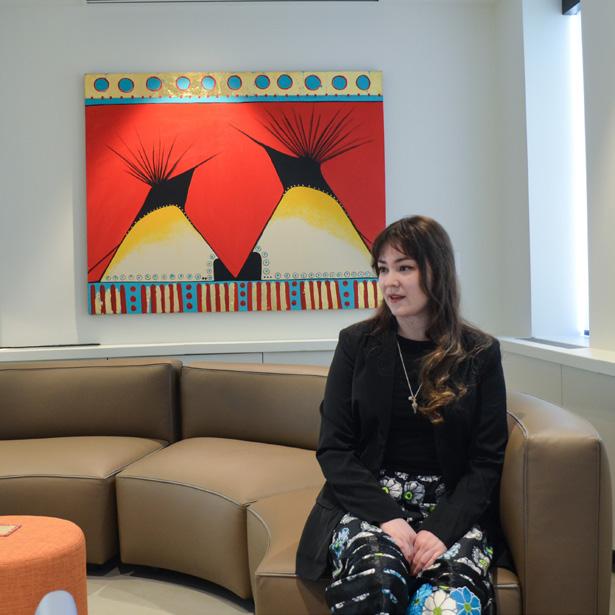
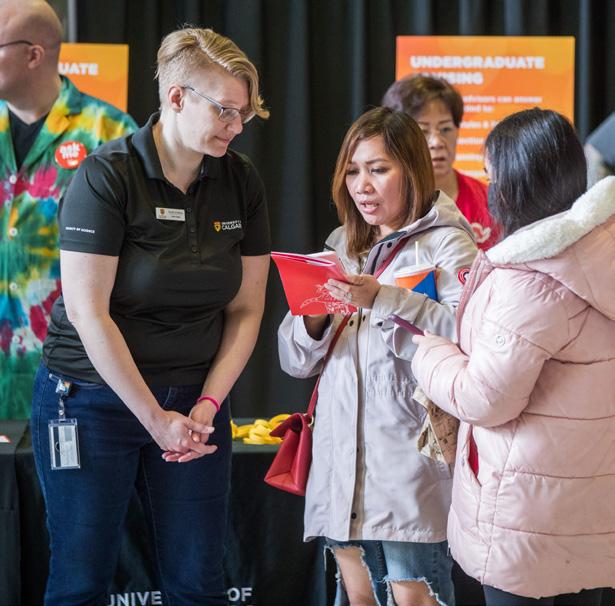
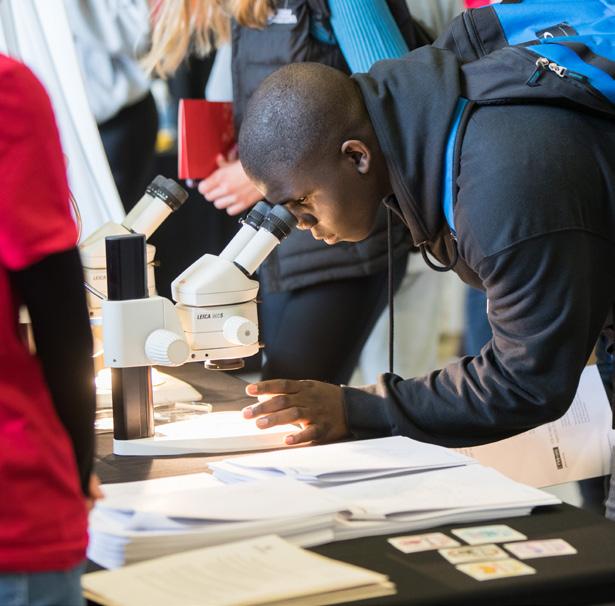
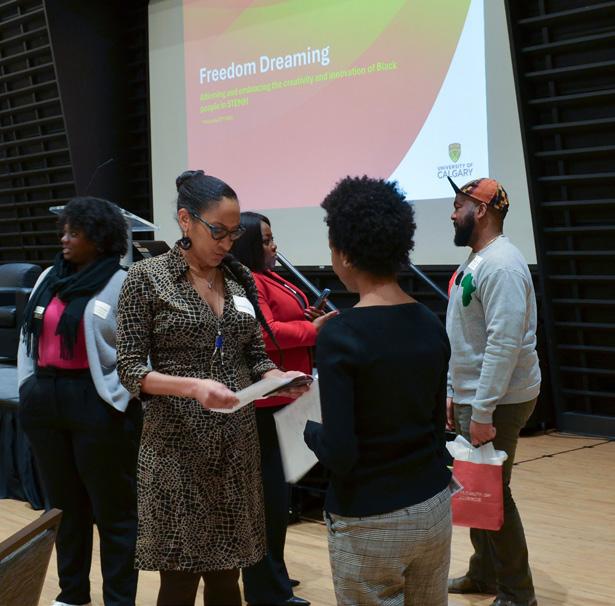
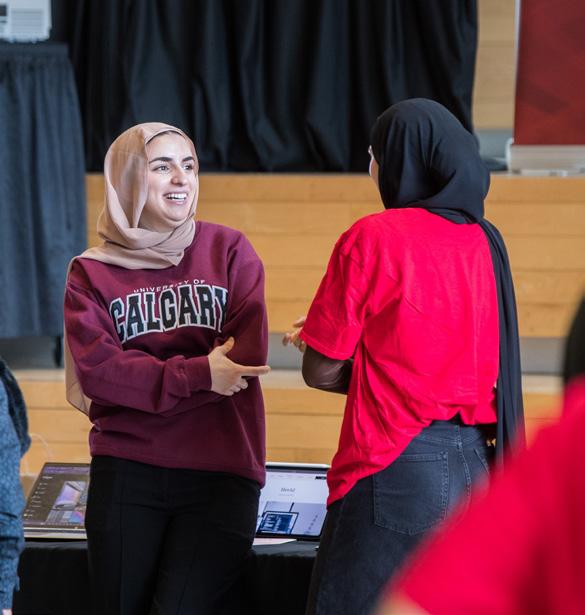
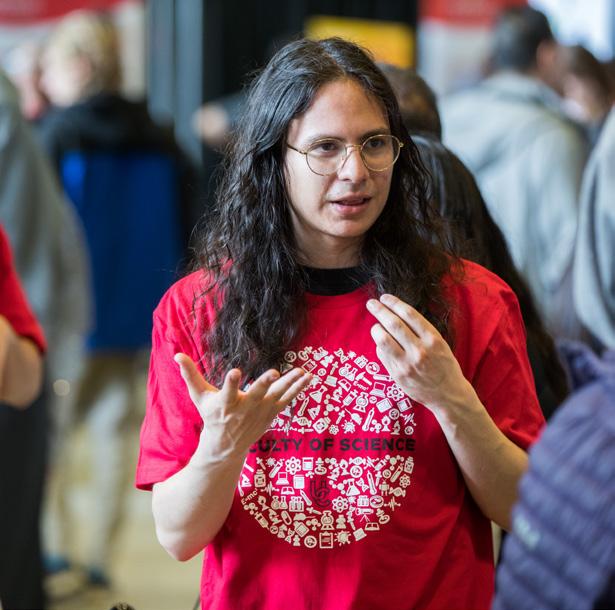
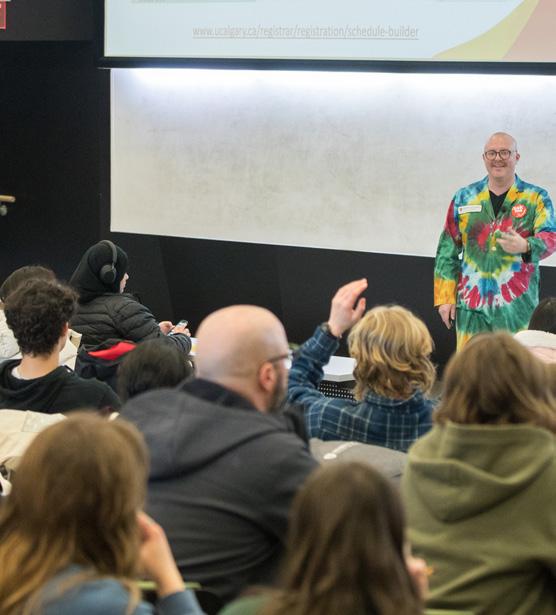

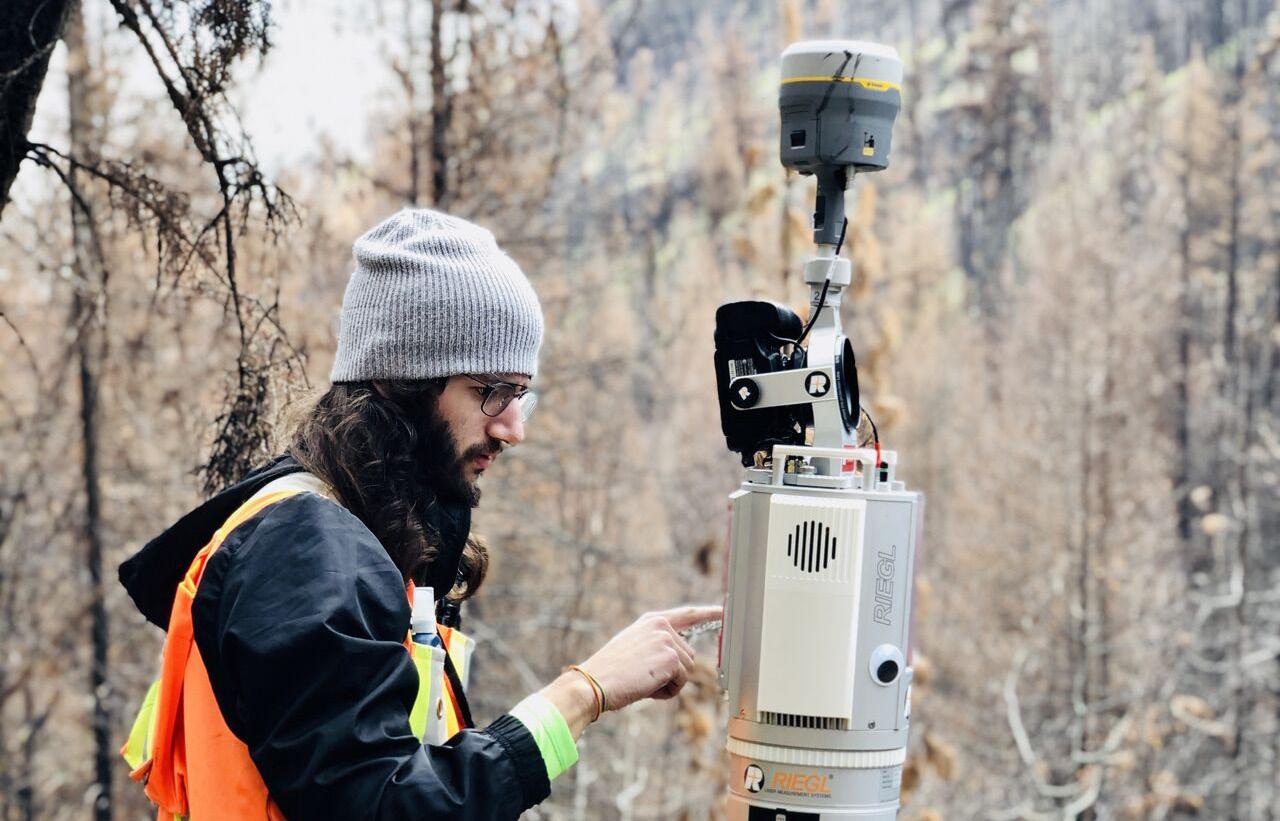
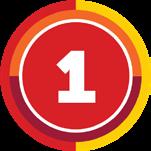
The Faculty of Science will embrace risk and collide disciplines to build high-impact partnerships with industry, society and governments, exploring an increased number of research topics. Together, these powerful, complex and well-facilitated teams will drive the kind of pathbreaking changes that no single researcher, group or organization can deliver alone. Centralized core services will enable projects to scale efficiently achieving even bigger impacts.
All other strategic priorities tie into this approach. For example, students will be engaged in these big research initiatives through hands-on experience in university labs and off campus with partners. The new building and renovated spaces will support collaborative ways of working and learning. Ever-expanding community audiences will connect to research in deep ways. The operational culture of excellence enables researchers and students to thrive in this high-impact environment. Scaling up will intentionally use diversity for strength, including a commitment to engagement of Indigenous scholars and new communities, and multiple ways of knowing.
1. Double the number of large-scale collaborative research initiatives with external financial support.
2. Grow external research revenue by 20% by 2030.
3. Establish a minimum of four specialized infrastructure facilities operating on a sustainable fee-for-service basis.
4. Double the number of start-ups being incubated in the Faculty of Science at any given time.
In a radical collaboration environment, large-scale initiatives and the funding to support them are mounted by highperforming teams and supported by partners from industry and academia. High-priority research problems are solved by diverse and inclusive teams that form dynamically, make use of top-tier facilities and infrastructure and, upon completion, re-form into new teams as new targeted projects are identified. Research teams are expected to bring together unusual combinations of expertise to create the conditions for creating scientific knowledge and new technology. Taking risks associated with grand challenges and original approaches will be applauded and rewarded.
A key initiative in this plan is the establishment of a core facilities model through which researchers are supported by powerful, well-maintained and sustainable core facilities. By 2030, the faculty will bring a minimum of four state-of-theart core research facilities on stream, supported by expert technical staff, that drive research impact for both internal and external communities. The core facilities will open up access to excellent research support platforms and equipment as needed, when needed, and at the level needed. Dramatically improved and consistently maintained core facilities will bootstrap productivity, allowing Faculty of Science researchers to Get Science Done at a new level.
Partnerships within the start-up ecosystem within the universityand beyond will be formally cultivated, expanded and tracked. The cultural flywheel set in motion by the encouragement to think big and partner with community,
especially in combination with shared core facilities, will lead to exciting and important new fundamental discoveries and translational research that will drive knowledge mobilization, innovation, commercializable technologies and services.

The recruitment and education of students who are enthralled in the frontiers and opportunities that surround them here in Calgary is a major plank in the transformation of the Faculty of Science to 2030. Based on experiences offered, the Faculty of Science will become a chosen destination for ambitious students – graduate students especially. Reputation will spread about the excellent growth opportunities made possible by science fundamentals, innovative curricula, immersive learning experiences, robust career-ready skills training, and vibrant community connections.
And graduates will stay in Alberta because of the prosperous pathways discovered and built through their education. The stimulation and learning offered by immersive experiences with industry and community partners, outreach programming and events, and a commitment to inclusive and accessible education, helps all students experience the very real lifelong impact of a top-quality science education. The strong reputation spreads, making the University of Calgary a destination for people from across Alberta and the world.
1. Increase enrolment by 2,000 science students (inclusive of graduate and undergraduate).
2. Provide all science students with professional workplace skills as part of their education.
3. Engage a minimum of 50% of all science students in for-credit co-ops, internships and research projects with community partners.
4. Double the number of applications from students from outside of Calgary.
By 2030, the faculty’s reputation will grow to become a destination school, especially for graduate students. Through the culture, content and experiences offered, the faculty will become the destination for the multiply talented. It will see a doubling in the volume of applications from ambitious, creative and talented students, especially graduate students, from outside of Calgary (nationally and internationally).
It will appeal to highly capable students seeking the opportunity to work with our excellent researchers, acquire strong science fundamentals, and the professional skills that prepare them to hit the workplace running. Through the development of innovative programs, expansion and renovation of spaces, combined with the increase in productivity and team culture, the Faculty of Science will be able to accept a minimum of 2,000 more students at both the undergraduate and graduate levels.
The Faculty of Science at the University of Calgary will be known as a community that coaches and brings out the best in students and sets them up for bright futures in industry and elsewhere to drive innovation and solutions. The camaraderie among students and respect for hands-on skills will help the faculty take a leadership role in meeting the evolving needs of the economy.
Professional skills training will prepare students for the workplace, and they will practice them every day in their experiential learning, courses, research projects, and internships.
Half of all science students will develop workplace readiness though a for-credit co-op and internships experiences with industry, community and partners who are involved in the faculty’s rich range of research.
Attracting the leaders of tomorrow, graduate students will be supported by nation-leading stipends as they become models for understanding how science can integrate social equity, the environment, and the economy to have a net positive impact.

The Faculty of Science will create a unique gateway to a Science District, where the community collides in a warm, welcoming and exciting way with the inspired practice of science. Doors will be opened to all for a future informed by science. New and renovated spaces will help to form a Science District that dramatically dials up the volume and impact of research and stimulates conversations with the community about the impact of science on our daily lives.
Three priorities for the new space will enable science that:
1. Improves the lives of everyone it touches,
2. Takes the risk and responsibility for bold, transdisciplinary, inclusive and regenerative growth, and 3) partners with industry, society, and governments to drive transformative change. Interactions in the Science District with alumni and corporate partners, community groups and not-for-profits, each year will result from imaginative and skillful programming.
1. Undertake a $450 million new building and renovation project.
2. Engage 15,000 alumni, donors and community members annually, including high-impact partnerships supporting radical research collaborations, experiential education opportunities, building expansion and public engagement activities.
3. Double the number of stories and announcements picked up by news platforms about advancements driven by the Faculty of Science.
This strategic planning process has pointed to the dire need for more space and better science space. A key priority of the faculty will be the development of a Science District that will include a new building and extensive renovations to existing spaces. New and innovative teaching and learning space will allow us to keep pace with growing student demand and improve student experience.
Open concept labs, flexible spaces and core-facilities designed to support radical collaboration will allow the Faculty of Science to keep pace with the research-intensive success that is driving faculty growth. This infrastructure investment will support the growth of community-engaged research, industry engagement and workplace-ready educational opportunities.
The public-facing facilities of the Science District will welcome all, inspiring curiosity and engagement with science. With a dramatic increase in the profile and reputation of the Faculty of Science, the community will see itself, its interests and challenges in the news and announcement generated by the
faculty about the important progress made every day by the research and education activity within the faculty. In this way, the Faculty of Science visibly supports prosperous pathways being built in Alberta.
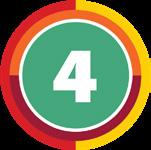
The Faculty of Science will create an inclusive and welcoming culture where all can succeed, with intentional inclusivity and equity-based decision-making, especially supporting reconciliation, to walk parallel paths with our Indigenous relatives. The culture of strength-through-diversity will include user-focused operational excellence, building a culture of trust that supports teams and their aspirations through dynamic, responsive and responsible leadership.
The goal is that a culture that puts relationships first will allow large and skilled dynamic teams to flourish. Centralized processes with user-oriented service mindset will empower their work, supported by more students and community partners, all thriving within a larger and renovated physical footprint. Success will be measured by the attraction, retention and well-being of people.
1. 90 percent of faculty and staff agree that the operational services that support their research and learning are good to excellent.
2. All hiring decisions support and reflect the goals of achieving cultural and gender diversity representative of the community in which we live and work.
3. All faculty and staff have access to professional development in facilitation, coaching and communication to support leadership of high-performing transdisciplinary research teams.
The outcomes driven by faculty, staff and students will be built on the service excellence mindset of the operations unit. Service excellence will support the commitment to novel curricula and continuous learning and adaptation, broad and deep research and internship partnerships, and significantly expanded fund development. The digitization of processes will remove barriers where possible, and help to create good jobs and meaningful work.
The commitment to radical research collaborations, with the concomitant expansion of space for community connections highly engaged with this research, will all be supported by a culture of diversity.
This culture is achieved by investing in people. “People” means all people, such that diversity, inclusion, equity and accessibility goals are part of hiring decisions, people development, and retention programs. Continuing to work with Indigenous peoples to deepen our connections with indigenous science and parallel ways of knowing will be proactively part of the faculty culture, led by the faculty’s own Indigenous team members.
This transformation will be made possible through both processes and people. Culture change that supports radical collaboration (and related areas of student and community engagement) will involve a long-term investment in skills development for facilitation, communication and collaboration to help teams build leadership and momentum.
The Faculty of Science will create a unique gateway to a Science District, where the community collides in a warm, welcoming and exciting way with the inspired practice of science.
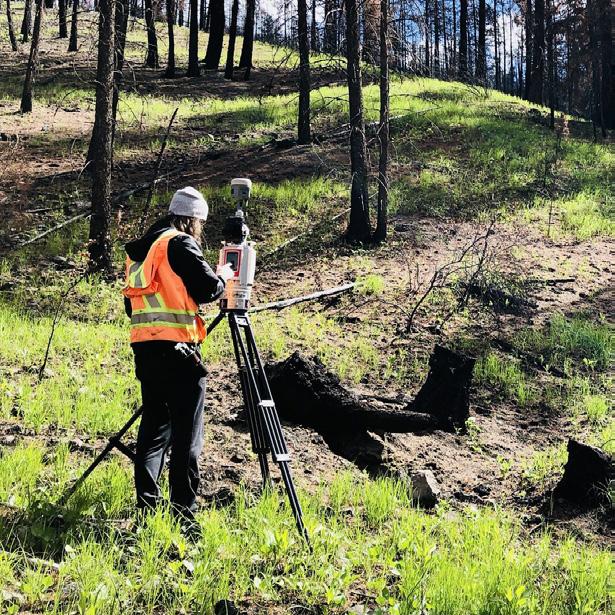
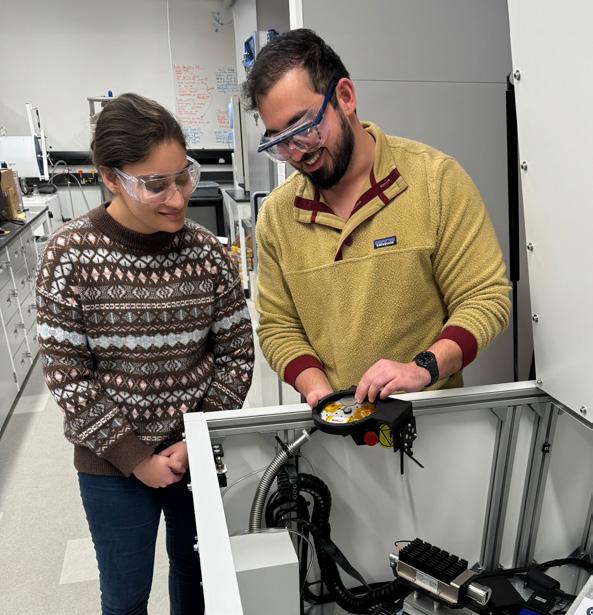
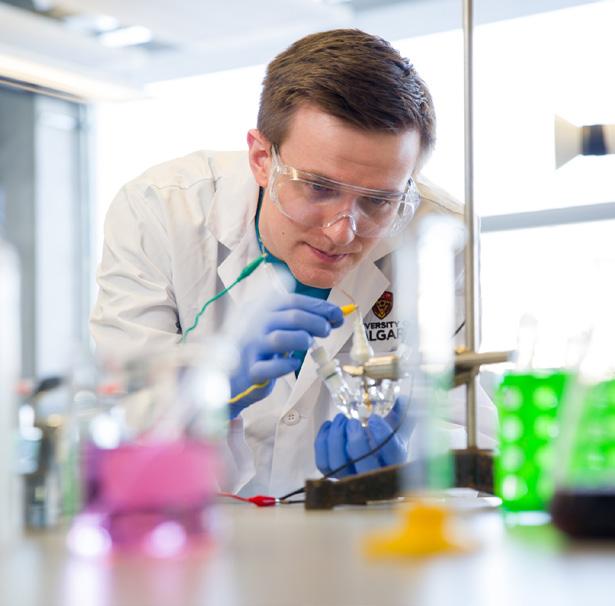
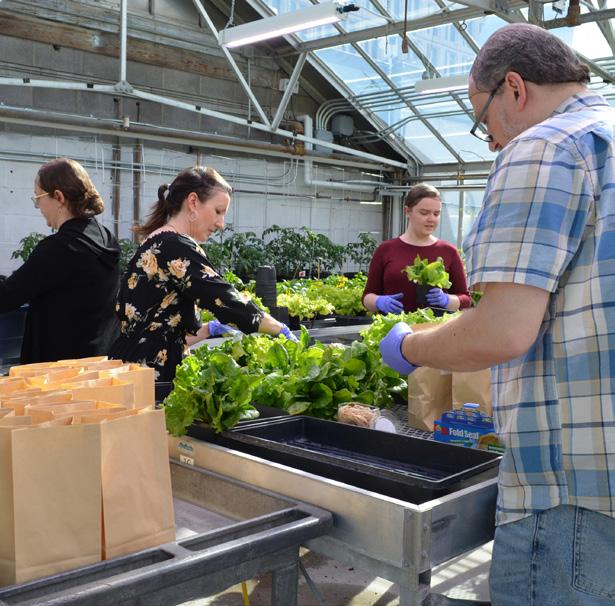
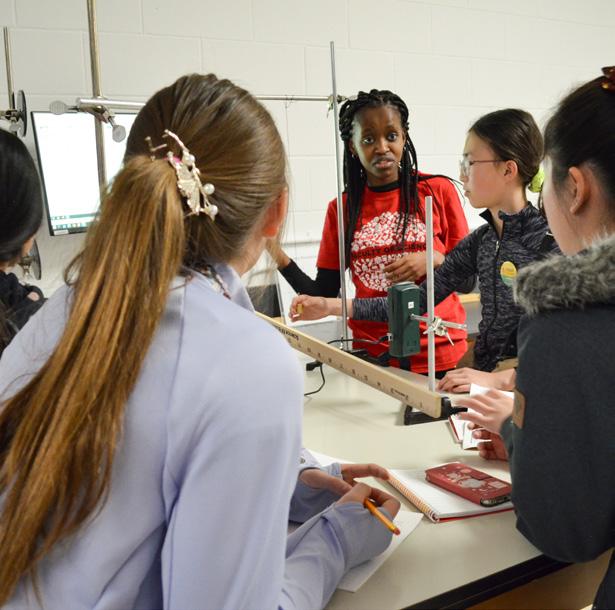


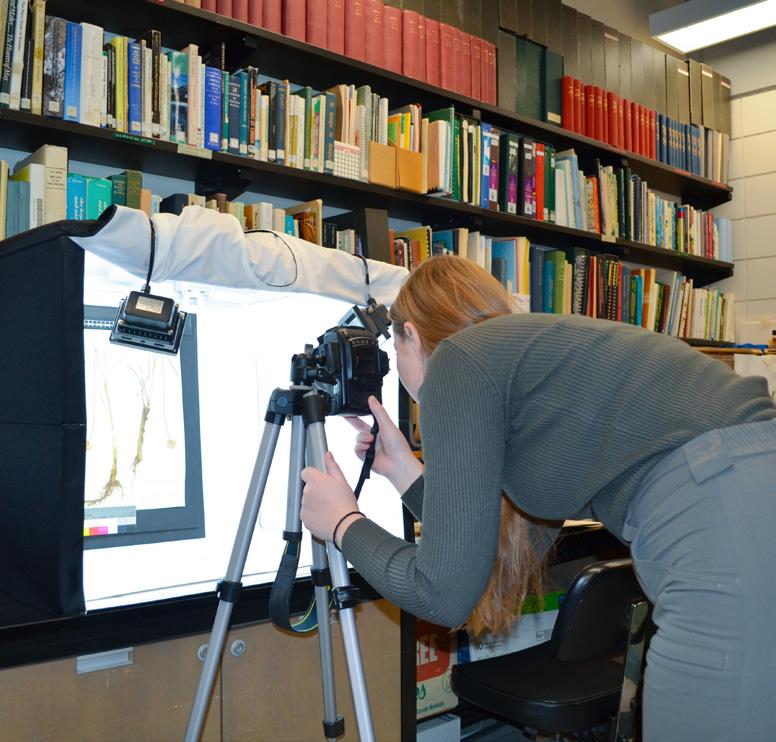
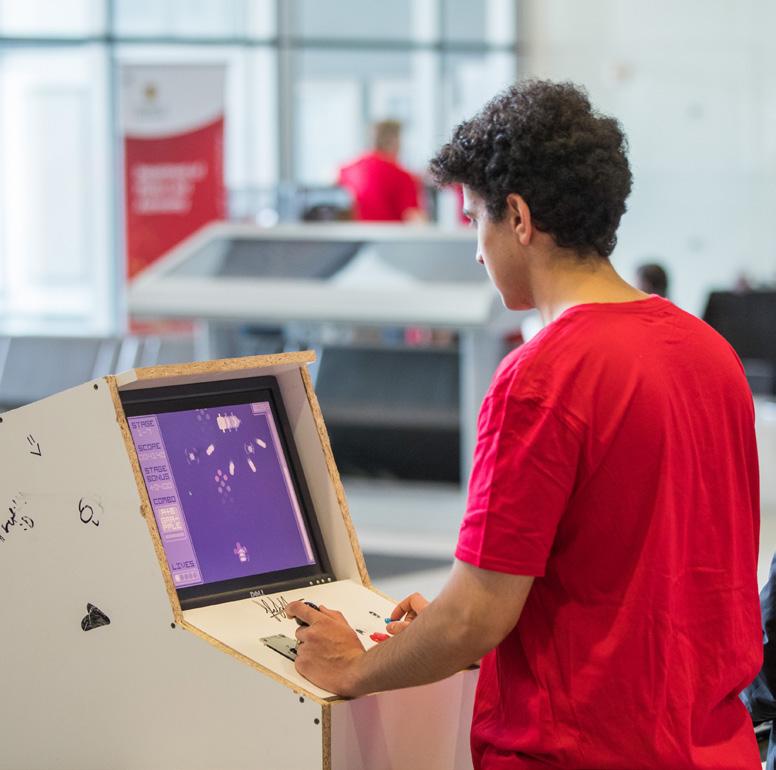
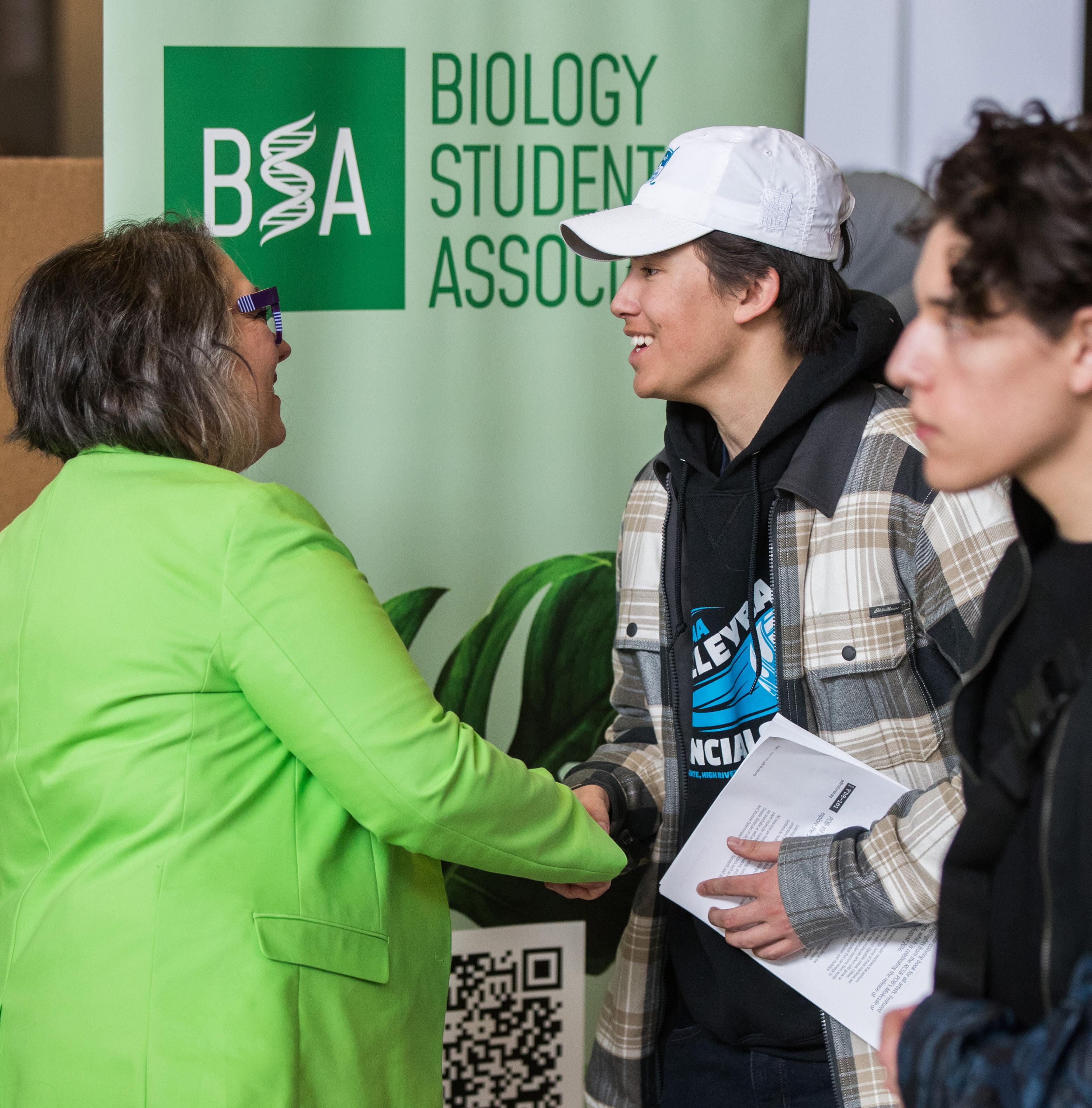
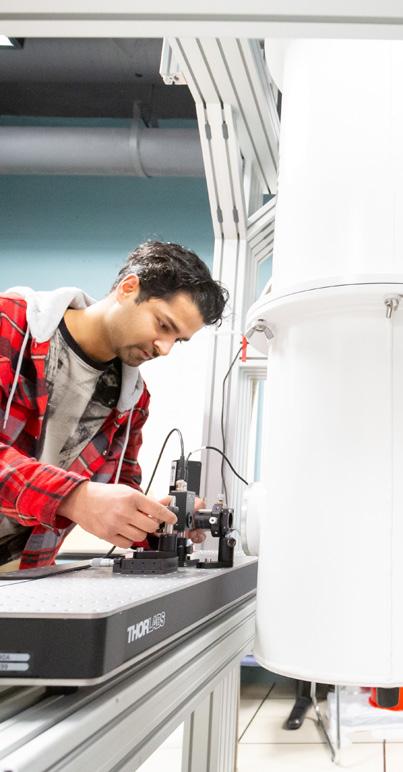

The
vision of the future for
this
Faculty of Science is terrifically exciting and comes at a crucial time.
Dr. Kristin Baetz Dean | Faculty of Science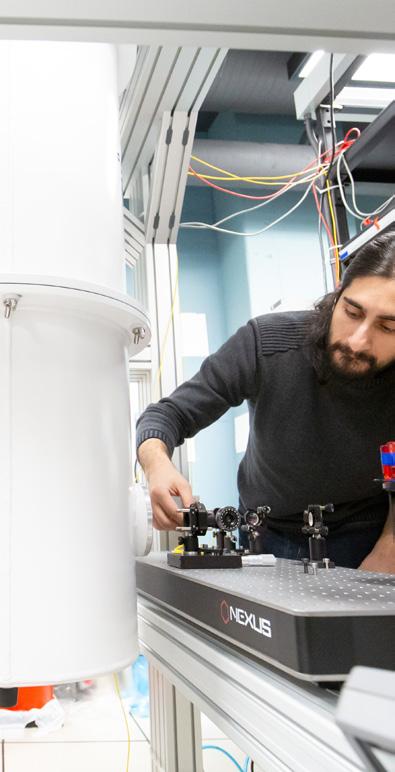

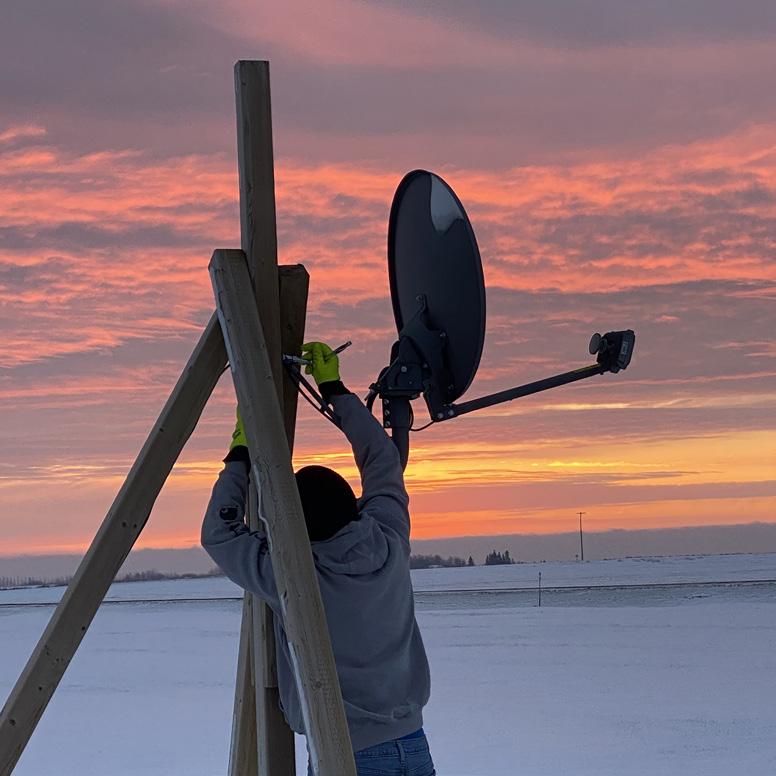
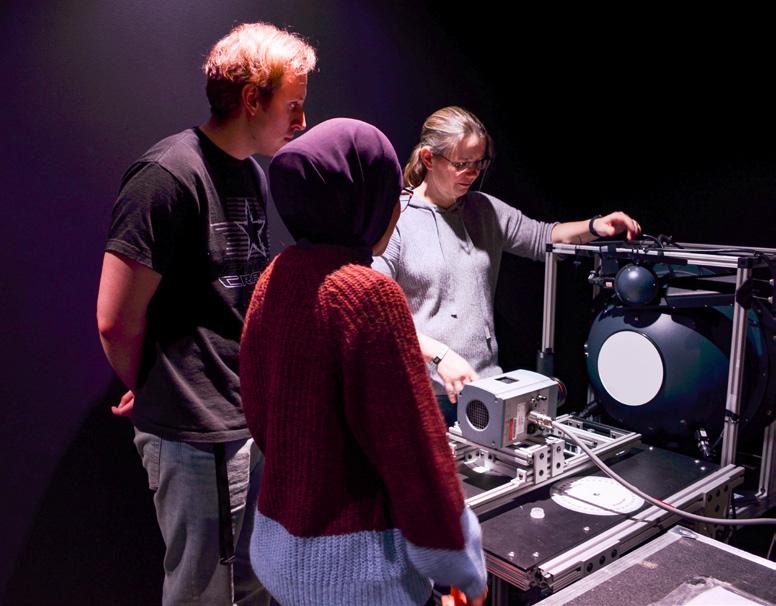
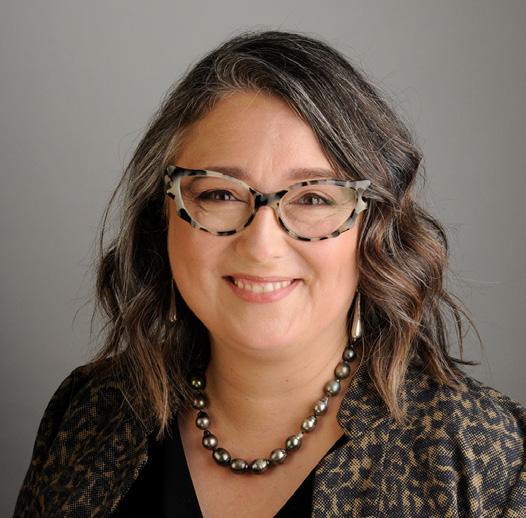
Kristin Baetz
Dean | Faculty of Science University of CalgaryThe Faculty of Science in Calgary is shaping its evolution with a renewed sense of vigour and urgency, to play a leadership role in the realization of the University of Calgary’s prescient goals for 2030. While a large and strong faculty, this strategic planning process shows that the Faculty of Science has considerable room to grow in visibility and relevance to the regional and national community.
To realize this potential, the faculty is investing in people – all those whose personal well-being is connected to success. This includes faculty members, staff and students at both the undergraduate and graduate level. It includes research partners and companies, not-for-profits and governments, along with all community members who value science. A thriving culture makes positive change possible.
The vision of the future for this Faculty of Science is terrifically exciting and comes at a crucial time.
The faculty will build radically collaborative systems and strong user-focused support for researchers, original and forwardlooking courses and student experiences, projects that drive a circular economy creating and maintaining businesses that benefit the planet, and clear relevance to the culture of Calgary and Canada, both of which operate in global business and environmental ecosystems. The world is big, and the Faculty of Science is thinking big.
Energy leadership has always been part of Calgary’s DNA (or, as we say in science, deoxyribonucleic acid). So too is the natural world in which Homo sapiens is a keystone species. The earth and the environment, the key role of agriculture, the emergent capabilities of data systems, the ecosystems connecting humans and animals, the domains of the very small and very large –these are the realms where leadership in science is essential. And these are the realms where the Faculty of Science at the University of Calgary is going to be growing, big time.
Care to join us? It is hugely rewarding to Get Science Done!
Kristin Baetz Dean | Faculty of Science

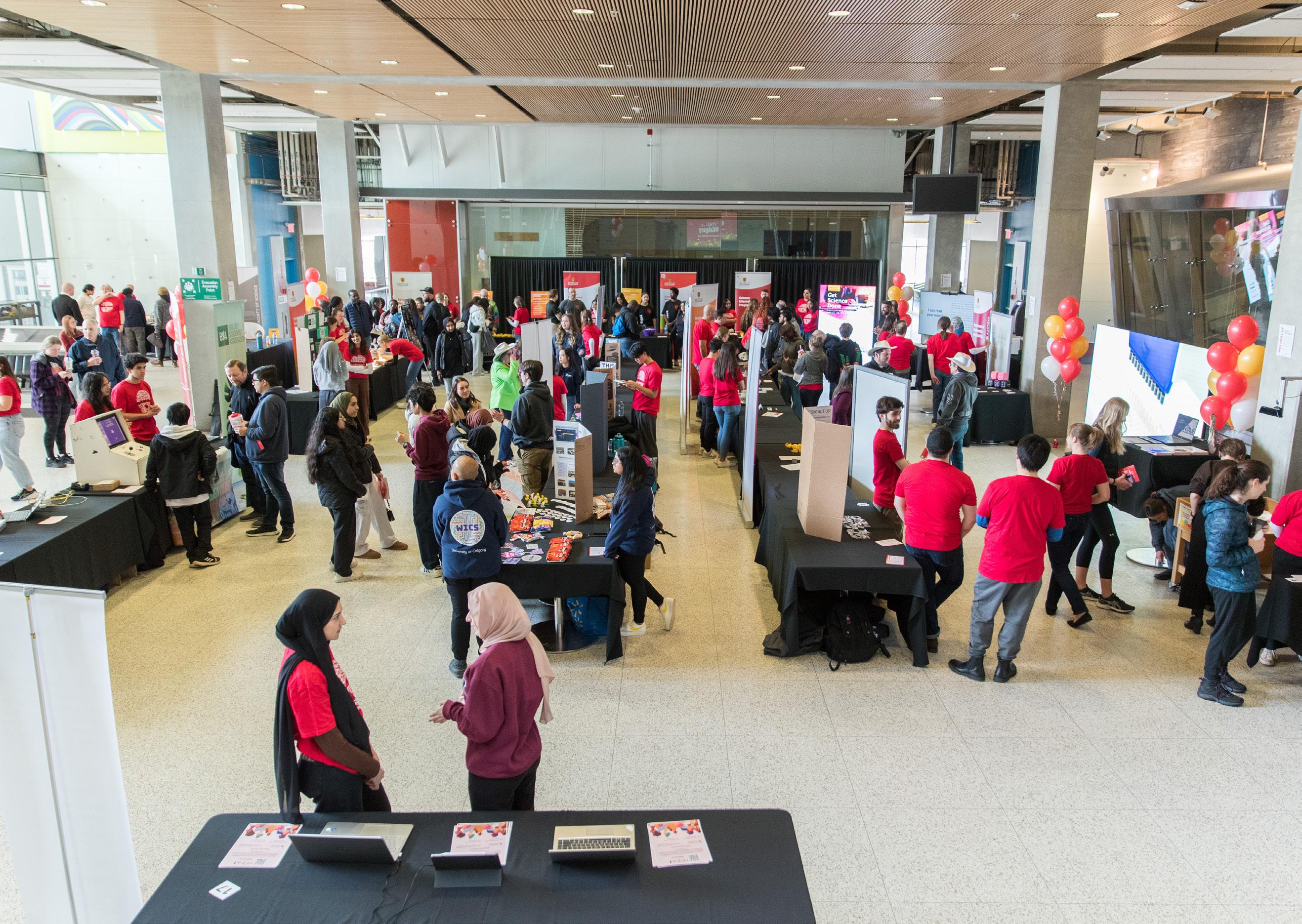
Faculty of Science
University of Calgary
2500 University Drive NW Calgary AB, T2N 1N4
scidean@ucalgary.ca science.ucalgary.ca
For more, visit: science.ucalgary.ca/strategic-plan-2024-2030